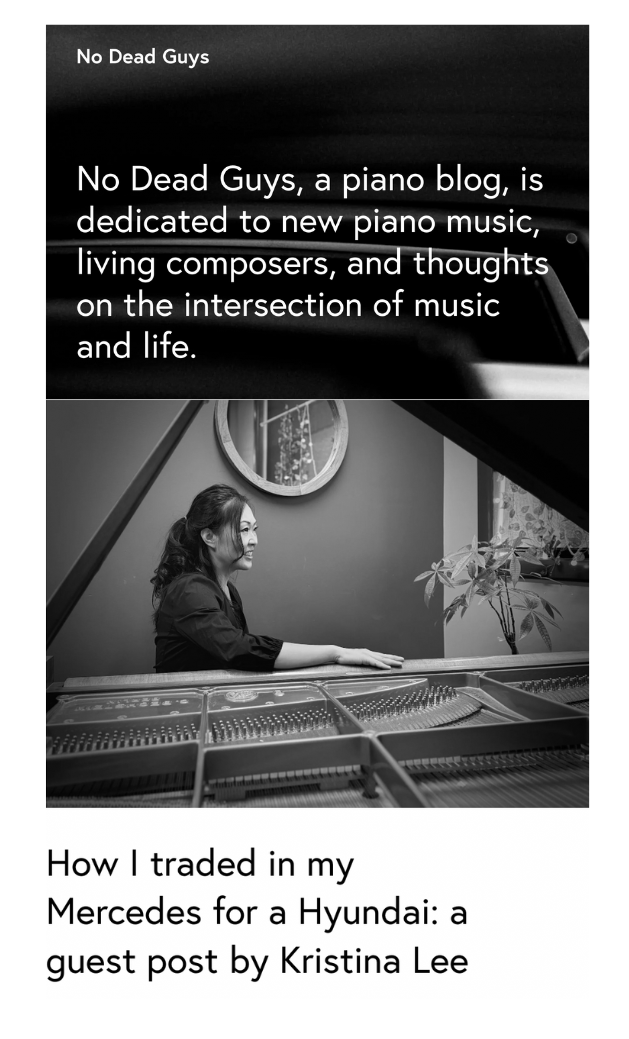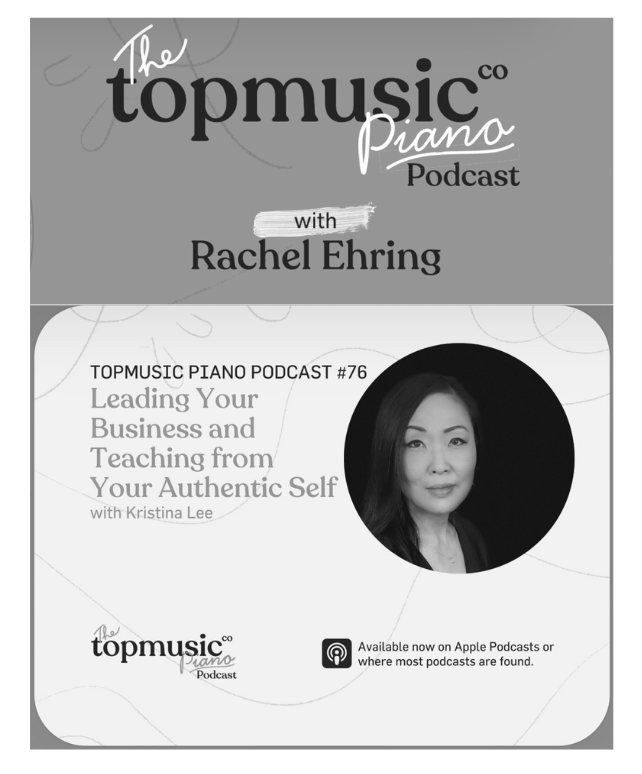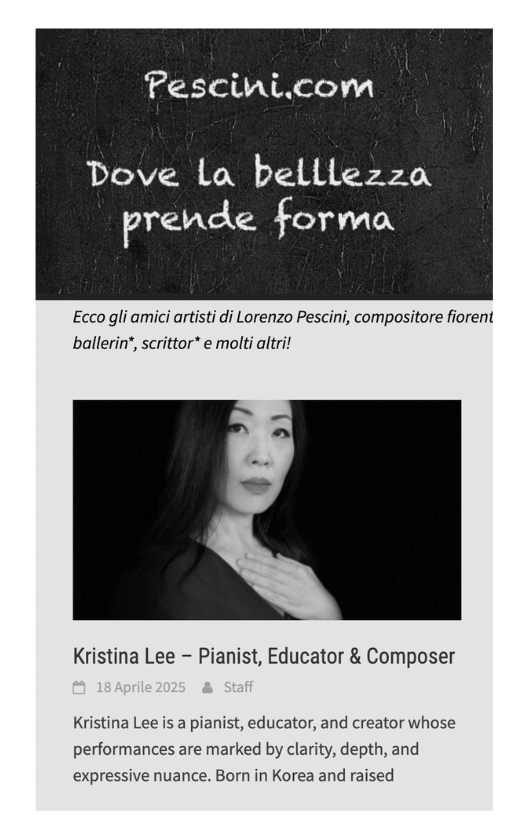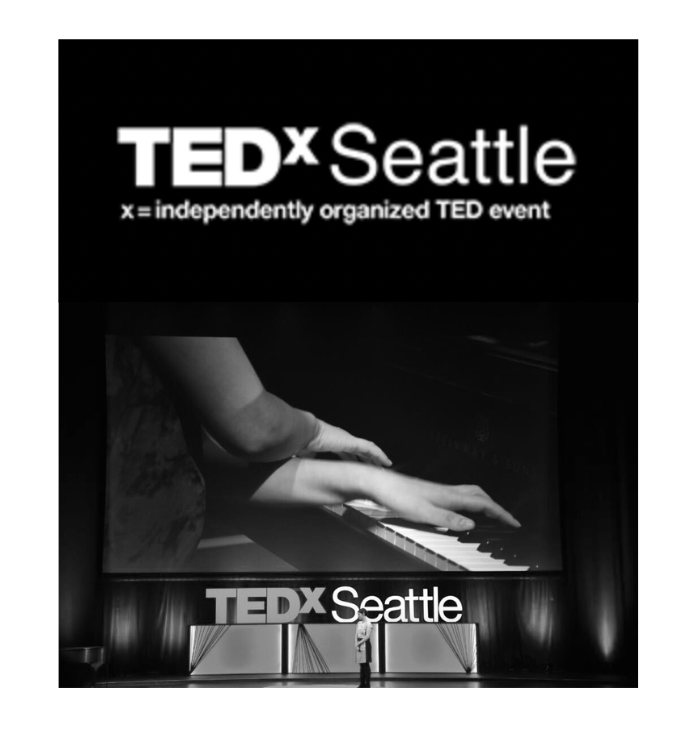About Kristina Lee
A pianist, composer, teacher, and creator of LiveLovePiano who believes music can heal, connect, and transform.
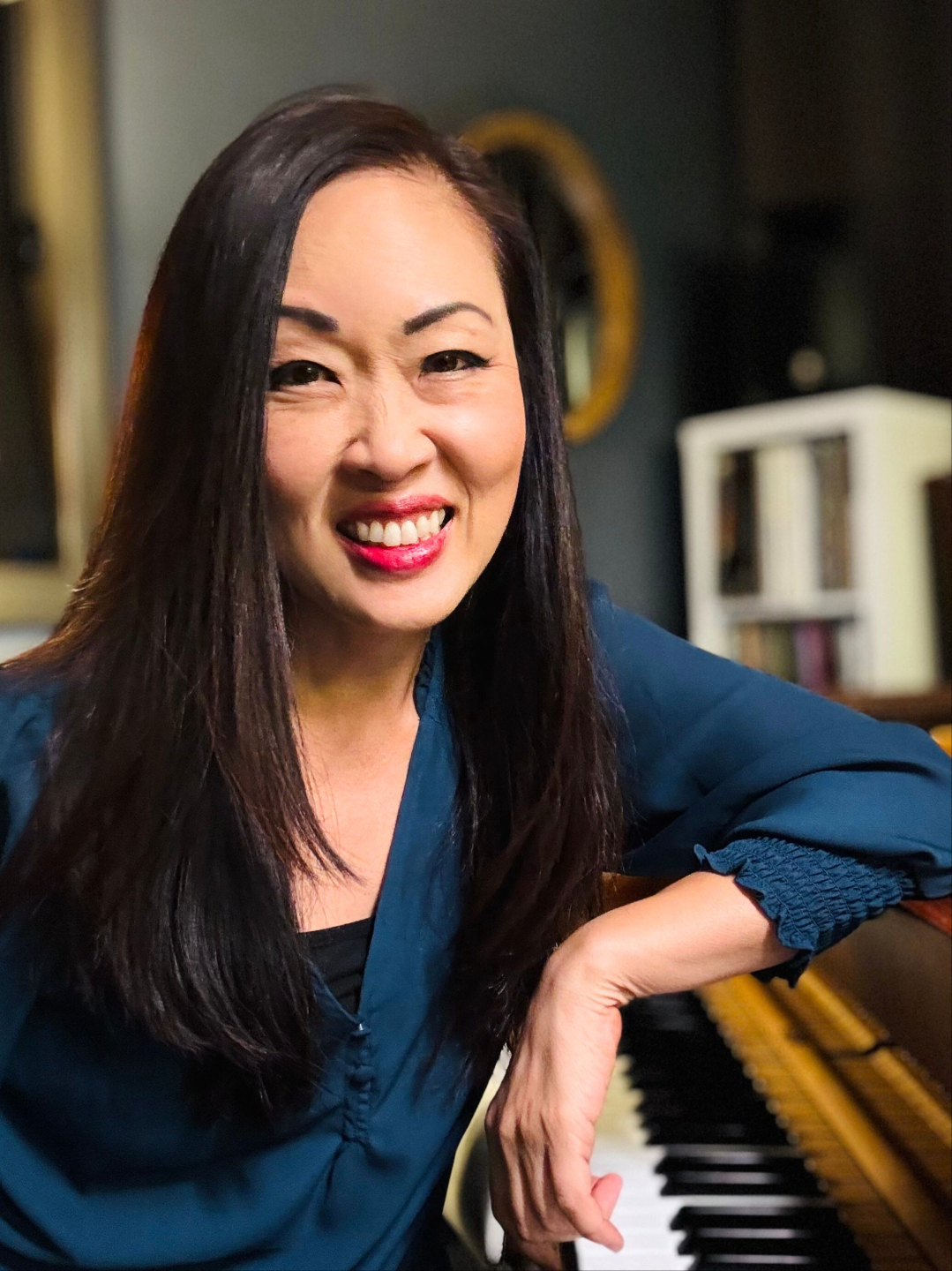
How I Teach Piano
Learning is a creative act.
And for a creative act to take root, it requires courage, steadiness, dedication, and a genuine love for the work itself.
I teach piano so that understanding comes early, not late.
Many adult learners spend years playing without truly understanding what they’re doing—relying heavily on written music, memorization, or instruction, while feeling unsure when they’re on their own. My work is centered on changing that experience.
Students who study with me don’t just learn pieces. They learn how music works. Over time, they read more confidently, practice more efficiently, and make independent musical decisions. Many begin improvising naturally. Many go on to compose. Most develop a lasting, meaningful relationship with the piano that continues well beyond a single course.
My teaching integrates technique, reading, harmony, and listening into a single, cohesive approach. Theory is not treated as a separate subject or postponed until “later.” Instead, concepts are introduced through application at the keyboard, so understanding grows alongside playing. By working this way, students learn why music functions as it does—and how to use that knowledge musically.
Equally important is my attention to the individual student. Teaching piano well requires more than subject-matter expertise. It requires perception: listening closely, observing patterns, and responding to how each person learns. I work with real people, not systems, and I adapt my guidance accordingly.
I am a pianist, composer, and educator with formal training in Piano Performance and Intercultural Studies. My background includes private teaching, international work, interdisciplinary collaboration, and leadership within music education organizations. These experiences continue to shape a teaching practice that values depth, clarity, and long-term growth.
Through Live Love Piano, I work with adult learners around the world who value thoughtful instruction and are drawn to understanding—not just achievement. This work is not designed to rush progress or chase external benchmarks. It is designed to build confidence, independence, and a sustainable relationship with music.
If you’re looking to understand the piano from the inside out, you’ll likely feel at home here.
